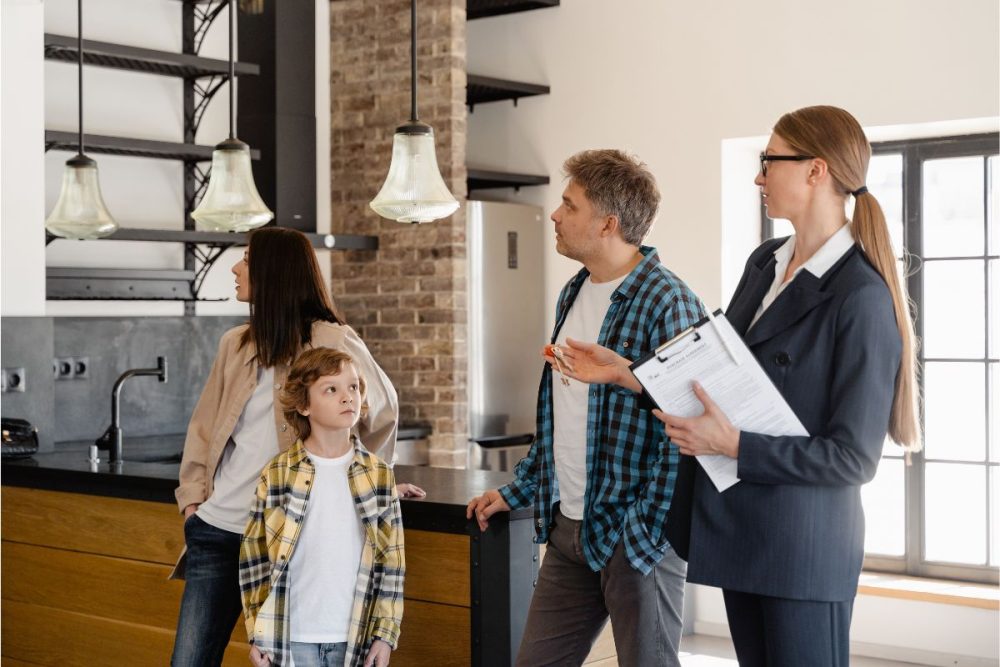Is it cheaper to build or buy? That’s the question you’ve come to as you’ve finally decided that it’s time to enter the property market and live the Australian dream.
It’s a question more home buyers are asking as construction costs, land prices, and house prices fluctuate across Western Australia. Whether you’re planning to build your own home or looking to buy an existing house, understanding the total cost, government incentives, and long-term costs is essential.
In this blog, we’ll explore the monetary and non-monetary factors involved in each option, helping you determine which path offers the best value for your situation.
Jump to section:
Build: Cost of building a house
There are multiple building costs to consider before deciding to construct a new house.
First Home Owner Grant (FHOG)
Eligible first home buyers in Western Australia can access the First Home Owner Grant, a one-off government grant of $10,000. This grant is available for new builds or existing ones, provided the total value of land and construction remains below $750,000 south of the 26th parallel and $1,000,000 north of it.
Stamp Duty
When you build a house, stamp duty is calculated on the land purchase only, not the house structure. This often results in lower stamp duty costs compared to buying an established property, where you will pay stamp duty on the full value of the land and dwelling.
WA also offers the First Home Owner Rate of Duty (FHOR), which can reduce or eliminate stamp duty for eligible buyers.
Lenders Mortgage Insurance (LMI)
Whether you build or buy, if your home loan deposit is less than 20%, you will typically need to pay LMI. This is a one-off fee that protects the lender, not the borrower, and it can cost thousands depending on the loan size.
Some first-time home buyers may avoid this by using a guarantor, working in specific occupations, or seeking a lender participating in the Home Guarantee Scheme.
Material and labour costs
According to RLB’s construction cost indicator, material costs in Perth for a townhouse range from $2,450 to over $5,000 per square metre, depending on finishes, build quality, and materials chosen. Rising construction costs, global supply chain issues, and currency fluctuations can all increase expenses throughout the project.
Labour costs are also a major factor, particularly if the build is delayed or extended due to weather disruptions, skilled trade shortages, or issues with project management. These can lead to increased costs.
Unexpected and extra costs
Even with fixed-price contracts, some builds come with additional costs. These might include siteworks, retaining walls, council approvals, fencing, landscaping, or temporary accommodation if delays occur. It is essential to budget for unexpected costs, even with a lump sum contract.
Buy: Cost of buying a house
If you prefer to buy a house, you are likely looking at an existing home or established property. While this can mean faster move-in times and access to desirable areas, it also comes with its own financial considerations.
First Home Owner Grant
The First Home Owner Grant is available for both existing homes and new builds.
- Jump to section: First Home Owner Grant (FHOG)
Stamp Duty
When buying a house, stamp duty is based on the total purchase price of the established home. This often results in a higher duty compared to building, particularly in high-value areas, as it takes both the land and property value into account.
Conveyancing fees and legal costs
When you buy a house, you are transferring ownership of an existing property. This process involves conveyancing fees, property inspections and legal services. Conveyancing costs can range from $1,000 to $2,200, depending on the complexity of the transaction. You should also budget for disbursements and third-party fees that may be associated with the purchase of a property.
Moving costs
Relocation costs are expected if moving to an existing home, such as hiring a truck or a removalist company. These expenses are minor compared to other housing costs but should still be accounted for.
Other factors in building a house
Benefits
- Creative freedom: Design your dream home with your preferred layout, materials, and features.
- Minimal maintenance: New houses typically come with warranties and are constructed with high-quality materials, which reduces repair costs for several years.
- Energy efficiency: Building from scratch allows for the inclusion of double-glazed windows, solar panels, and electric vehicle (EV) charging, all of which contribute to lower energy bills and utility costs.
- Modern design: Building enables improved layouts, accessibility, and integration of smart home technology.
Cons
- A longer timeline: From land purchase to completion, building a house typically takes significantly longer than purchasing an existing dwelling, excluding potential delays.
- Location limits: Finding vacant land near the Perth CBD or in capital cities can be difficult, reducing your choice of desired location.
Other factors of buying a house
Benefits
- Shorter timeline: Move in shortly after settlement, potentially saving money on rent or temporary accommodation.
- Simpler process: No need for construction loans, staged payments, or managing a build.
- Established locations: Many established homes are in central, well-developed suburbs with better access to infrastructure and amenities.
Cons
- Limited design flexibility: You must work within the existing structure’s constraints unless you plan a major renovation.
- Maintenance costs: Established properties may require maintenance sooner and are often less energy-efficient unless they are upgraded.
Is building a house cheaper than buying?
The answer depends on your financial situation, location, lifestyle needs, and eligibility for government incentives. For many first-home buyers, building a new house can be more cost-effective, thanks to the First Home Owner Grant (FHOG), reduced stamp duty, and long-term energy savings. However, buying an established home can offer good value if location and immediate access are priorities.
The average cost of building a house in Perth may be lower than buying in some suburbs, but with rising construction costs and potential delays, it is not always the cheaper option. It is essential to consider both the upfront and long-term costs before making a decision.
Thinking of buying a new home?
Contact HKY Real Estate for expert advice on making the right move. Our experienced team of real estate agents can help guide you through the options and what’s best for your property journey.
Frequently asked questions
Build timelines typically range from 12 to 24 months from the first slab laid. It should be noted that delays caused by adverse weather conditions, material shortages, or builder availability can further extend this timeframe.
The majority of the time, yes. This is because stamp duty is calculated on both the land and house value. However, first home buyers may be eligible for the First Home Owner Grant (FHOG), which reduces or eliminates stamp duty for properties under specific thresholds. If you’re not a first-home buyer, purchasing a house will usually incur a higher stamp duty.
Higher interest rates impact both options, but construction loans often come with more stringent conditions and require interest-only repayments during the construction period. Buying an established home can offer more immediate certainty of the rate.
Have more questions?





